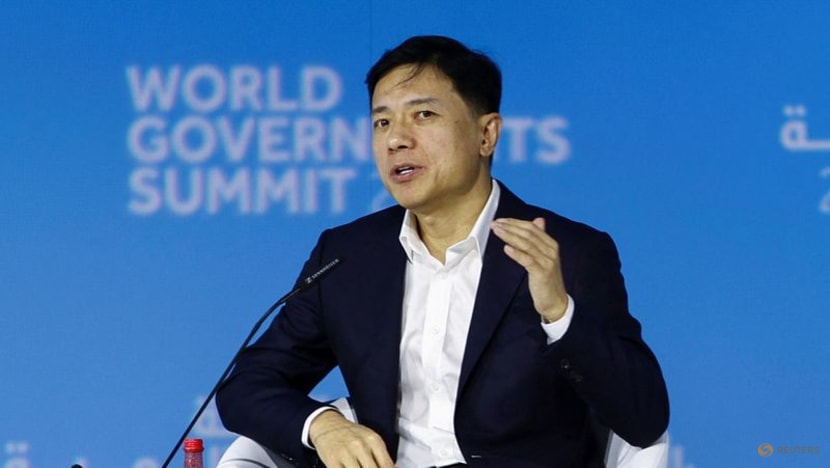Baidu CEO says more AI spend still needed despite DeepSeek's success

Baidu's co-founder and Chief Executive Officer (CEO) Robin Li speaks during a session at the World Governments Summit, under the theme 'Shaping Future Governments', in Dubai, United Arab Emirates, on Feb 11, 2025. (Photo: REUTERS/Amr Alfiky)
BEIJING: Investment in data centres and cloud infrastructure is still needed despite DeepSeek challenging the cost efficiency of large AI models, Baidu CEO Robin Li said on Tuesday (Feb 11).
"The investment in cloud infrastructure is still very much required. In order to come up with models that are smarter than everyone else, you have to use more compute," Li told attendees at the World Government Summit in Dubai.
Compute refers to the hardware resources that make AI models work, allowing them to train on data, process information, and generate predictions.
Li's comments come as Chinese AI startup DeepSeek has gained global attention for developing language models that match the performance of leading systems like OpenAI's GPT while using significantly less computing power, raising questions about the necessity of massive AI infrastructure spending.
Baidu was among the first Chinese companies to launch AI products following OpenAI's ChatGPT release in late 2022. However, its large language model Ernie, which Baidu claims matches GPT-4's capabilities, has seen limited public adoption.
Li has made bold claims about China's AI landscape in the past, including saying that it was unlikely that another OpenAI-like company would emerge from China. He had also advocated for closed-source models as the only viable path for AI development.
At Tuesday's summit, Li acknowledged that DeepSeek's sudden emergence demonstrated the unpredictable nature of innovation.
"You just don't know when and where innovations come from," he said.
Li added that US chip sanctions have forced Chinese companies to innovate within computing constraints.
He also appeared to soften his stance on closed-source development, now acknowledging that open-source approaches could accelerate AI adoption.
"If you open things up, a lot of people will be curious enough to try it. This will help spread the technology much faster."
















